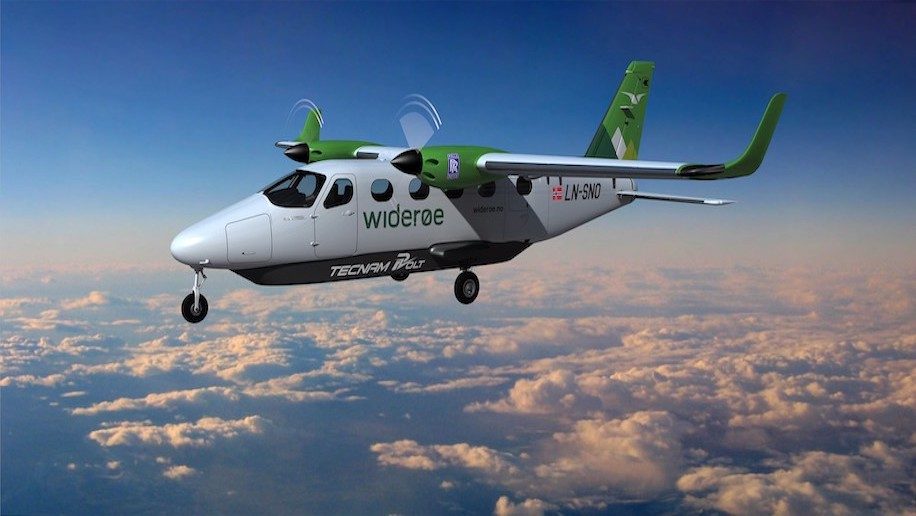
Rolls-Royce has collaborated with Scandinavian regional airline Wideroe to develop an all-electric passenger aircraft.
The sustainable aircraft is set to be ready for service in 2026, with Rolls-Royce providing expertise in propulsion and power systems while manufacturer Tecnam will supply aircraft design, manufacturing and certification capabilities.
The latest development expands on the joint research programme set up in 2019 between Rolls-Royce and Wideroe to develop electric aircraft concepts and fulfil Norway’s goal to have the first electrified aircraft in domestic scheduled flights by 2030.
Rolls-Royce also has an ongoing partnership with Tecnam to power the all-electric P-Volt aircraft, which is described as being “ideal for the short take-off and landing as well as for routes in the North and the West Coast of Norway”.
Due to its topography, Norway relies on aviation for regional connectivity, but has set itself the goal of achieving zero emissions on all domestic flights by 2040. Wideroe operated approximately 400 flights per day before the pandemic, with 74 per cent of these under 275km in length. The airline hopes that its development of all-electric aircraft will “enable people to be connected in a sustainable way”.
Stein Nilsen, CEO of Wideroe, commented:
“Norway’s extensive network of short take-off and landing airports is ideal for zero emissions technologies. This aircraft shows how quickly new technology can and will be developed, and that we are on track with our ambition of flying with zero emissions around 2025.”
Rob Watson, Director of Rolls-Royce Electrical, added:
“Electrification will help us deliver our ambition to enable the markets in which we operate achieve net zero carbon by 2050. This collaboration strengthens our existing relationships with Tecnam and Wideroe as we look to explore what is needed to deliver an all-electric passenger aircraft for the commuter market. It also demonstrates Rolls-Royce’s ambitions to be the leading supplier of all-electric and hybrid electric propulsion and power systems across multiple aviation markets.”
Fabio Russo, Chief Project R&D and Product Development at Tecnam, also commented:
“It is incredible to see the interest around the P-Volt, not only coming from regional airlines, but also from smart mobility-based companies. This last year has demonstrated the importance of promoting capillary connections between small communities, while reducing the congestion of the main hubs. The P-Volt, like the P2012 Traveller today, will perfectly fit the scope of this programme. We are honoured and pleased to see the level of enthusiasm Widerøe and our partner Rolls-Royce are dedicating to this project.”
Last year Rolls-Royce set out its ambition to play a leading role in enabling the sectors in which it operates to reach net zero carbon by 2050 through the development of new products and technologies.
Airlines including United, Easyjet and SAS are also looking into the development of electric aircraft to support the aviation industry’s transition to sustainable energy.












